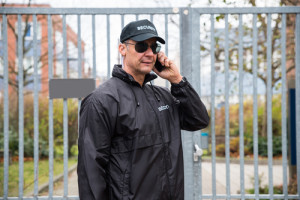There is no denying that a good film score can make any film a much better movie. This is true of all films. While musicals are the obvious beneficiaries of great soundtracks, any movie with a memorable soundtrack to set the mood makes a good film amazing.
 While Singin’ in the Rain would not have made such a powerful impact on the mass consciousness without its iconic film score, neither could King Kong, Psycho or the Star Wars series. This extends beyond American cinema: Seven Samurai’s score is iconic even in the west, and the British Hammer Horror series loses a lot of teeth without its shocking soundtracks.
While Singin’ in the Rain would not have made such a powerful impact on the mass consciousness without its iconic film score, neither could King Kong, Psycho or the Star Wars series. This extends beyond American cinema: Seven Samurai’s score is iconic even in the west, and the British Hammer Horror series loses a lot of teeth without its shocking soundtracks.
However, things were not always so. In the early days of cinema, as most people know simply from the concept of “silent films,” there used to be no sound in movies at all. Despite this, while the earliest films do not have soundtracks, many early movie houses hired organists or even orchestras to play music during the showing of the early silent films.
This was not due to any matters of artistic ideals, but rather because early projectors made incredibly irritating noises and since sound absorbent walls did not yet exist between the audience and the projector, something was sought to cover up the grinding of the projector. Most movie houses chose to use music.
It wasn’t long before movie goers began to appreciate the music as a supplement to the moving pictures on the screen, In 1914, the Oz Film Manufacturing Company sent full length scores by Louis F. Gottschalk to go along with their films, and thus the age of the film soundtrack had begun.
While this was only a common practice for big budget movies of the era (and even then was not a standard practice, as many movie houses preferred to have their in-house musicians play traditional pieces by famous composers), it did mark the first intertwining of the aspects of moving images on the screen and moving music in the theater.
In the 1920’s, German cinema, once a major powerhouse in the medium of film the world over, provided a number of scores to go along with movies, such as Fritz Lang’s Die Nibelungen and Metropolis, as well as F. W. Murnau’s iconic expressionist horror films Faust and Nosferatu.
When film technology finally began to include sound, it was some years before soundtracks came into this medium. While Tod Browning’s 1931 Dracula is an early “talkie”, it includes no soundtrack despite the fact that its sound recordings defined how vampires talk in the modern imagination.
Synchronizing movies with music was a landmark event in film history, first taking place in another legendary creature feature, David O. Selznick’s King Kong in 1933. The soundtrack of King Kong was composed by Max Steiner and features many scenes of music synchronized with the film’s action, such as when the chieftain of the people of Skull Island approaches the visitors to the island, with each footfall being back by a background chord.
During the 1940s, there was less development in the medium of film scores, but in the 1950s, there was the beginning of the modern film score, shifting away from purely orchestral sounds and adapting to other types of sounds, ranging from jazz influences to the style of music beloved by Broadway that finally hit the silver screen in that era. The horror film soundtrack, with its emphasis on uncomfortable tension and sudden, shocking surges of music, began in this era as well, with Alfred Hitchcock’s Vertigo and Psycho beginning the age of the horror film soundtrack. Since then, movie scores have gone on to become an essential part of nearly every film on the market today.
